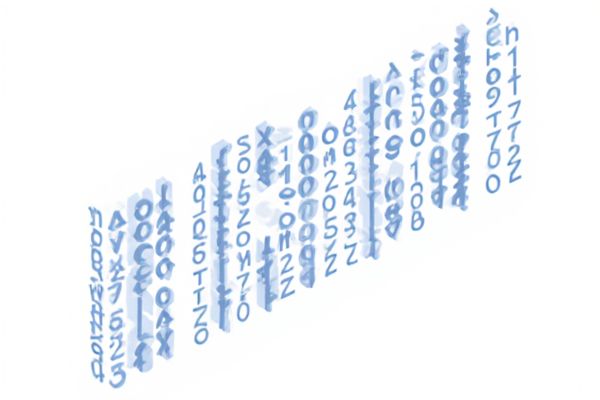
Discover the ease of creating unique 64-digit hexadecimal codes instantly with this online generator tool. Perfect for developers, cryptographers, and tech enthusiasts seeking secure, high-entropy identifiers or keys. Generate precise, random hex codes effortlessly to enhance your projects and digital security.
Online tool for random 64 digit hex code generator
Below are several samples generated by our random 64-digit hex code generator, ready for immediate use and randomization. You can also input your own list to customize the results. With a single click, the tool provides a randomized list and selects one value for you to use.Data Source
Single Result
Multiple Results
Introduction to 64-Digit Hex Codes
A 64-digit hex code is a string composed of 64 characters, each ranging from 0 to 9 or A to F, representing 256 bits of data. These codes are commonly used in cryptographic applications, digital signatures, and blockchain technology due to their complexity and uniqueness. Generating a random 64-digit hex code ensures high entropy, making it suitable for secure keys and identifiers in cybersecurity contexts.
Purpose and Applications of Hexadecimal Codes
Hexadecimal codes serve as a compact and efficient way to represent large binary values, making them essential in fields like cryptography, data encoding, and digital communications. A random 64-digit hex code generator produces unique 256-bit keys used for encryption algorithms, ensuring data security and integrity in software applications and blockchain technology. These codes also facilitate color representation in web design and debugging processes in coding environments.
Structure of a 64-Digit Hexadecimal Value
A 64-digit hexadecimal value consists of 256 bits, represented by characters ranging from 0-9 and A-F, each symbolizing 4 bits. This structure provides a compact and efficient way to encode large binary data, commonly used in cryptographic keys and hash functions like SHA-256. The randomness in each digit ensures a high level of entropy, crucial for secure key generation and collision resistance.
Security Benefits of Long Hex Codes
Random 64 digit hex code generators produce extremely high-entropy cryptographic keys vital for securing sensitive data and communications. The 256-bit length inherent in 64-character hexadecimal strings significantly reduces the risk of brute-force attacks, enhancing overall cybersecurity resilience. Implementing these long hex codes in encryption protocols ensures robust protection against unauthorized access and data breaches.
Entropy and Randomness in Hex Code Generation
A random 64-digit hex code generator relies heavily on high entropy sources to ensure unpredictability and cryptographic strength. True randomness in hex code generation is crucial for security applications such as encryption keys, where predictable patterns can lead to vulnerabilities. Leveraging hardware-based random number generators or secure pseudorandom number generators (CSPRNGs) enhances the overall entropy, producing hex codes that resist collision and prediction attacks.
Programming Languages for Generating Hex Codes
Programming languages like Python, JavaScript, and Java offer efficient methods for generating random 64-digit hex codes using built-in libraries such as Python's `secrets` and JavaScript's `crypto`. These languages provide cryptographically secure random number generators that ensure uniqueness and unpredictability in hex code generation. Utilizing functions like Python's `secrets.token_hex(32)` or JavaScript's `crypto.getRandomValues()` enables developers to produce robust 64-digit hexadecimal strings for security and identification purposes.
Sample Algorithms for 64-Digit Hex Code Creation
Sample algorithms for 64-digit hex code creation typically utilize cryptographically secure pseudorandom number generators (CSPRNGs) to ensure high entropy and unpredictability. These methods often involve generating 256-bit random values, which are then converted into a 64-character hexadecimal string using base-16 encoding. Common implementations include leveraging algorithms such as Fortuna, SHA-256 based generators, or system-level entropy sources like /dev/urandom to produce robust 64-digit hex codes for cryptographic applications.
Validating Hexadecimal Output Integrity
Validating the output integrity of a random 64-digit hex code generator ensures each hexadecimal digit is properly constrained to the 0-9 and A-F range, maintaining strict adherence to hexadecimal format standards. Employing checksum algorithms or hash functions helps detect anomalies and guarantees the cryptographic reliability of generated codes. Regular validation processes enhance the robustness of systems relying on these unique, high-entropy identifiers for secure data encryption and authentication.
Use Cases: Cryptography and Unique Identifiers
A random 64-digit hex code generator produces highly unpredictable strings essential for cryptographic keys, ensuring secure encryption and data protection. These codes serve as unique identifiers in distributed systems, preventing collisions and enabling reliable resource tracking. Their vast entropy makes them ideal for session tokens, API keys, and digital signatures in cybersecurity applications.
Best Practices for Managing Generated Hex Codes
Secure storage solutions, such as encrypted databases or hardware security modules (HSMs), are essential for managing randomly generated 64-digit hex codes to prevent unauthorized access. Implementing access controls with role-based permissions ensures only authorized personnel or systems can retrieve or use these codes. Regular audits and rotation policies enhance security by minimizing risks associated with potential code exposure or long-term usage.
 azrandom.com
azrandom.com